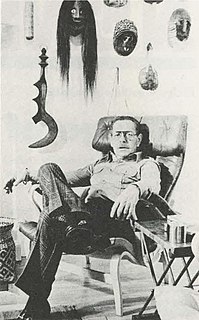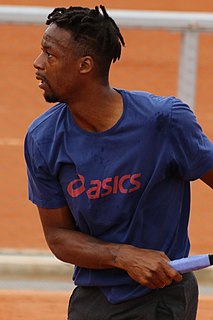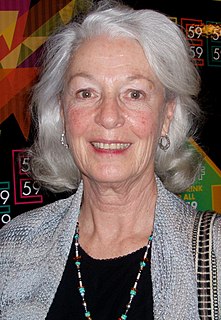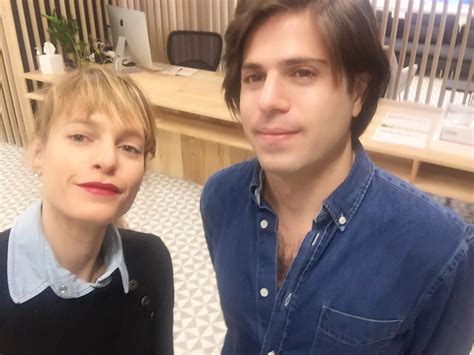A Quote by Colleen Atwood
The reward is that you can actually create a world separate from reality with a story, actors, music, and camera design. When it works it can entertain, move people and teach us all.
Related Quotes
You can't teach anyone. You can't tell anyone. That's the thing you have to sit down and experience in order for it to mean anything. You can't intellectualize it. It's like why movies are cool. It's a combination of pictures and design and acting and music can create an experience that is outside of the experience that you can actually have in reality, which gets to my motion picture philosophy. People are like, 'aren't you trying to make the movies as real as you can?'
Not without design does God write the music of our lives. Be it ours to learn the time, and not be discouraged at the rests. If we say sadly to ourselves, "There is no music in a rest," let us not forget " there is the making of music in it." The making of music is often a slow and painful process in this life. How patiently God works to teach us! How long He waits for us to learn the lesson!
Just as the telescope and microscope show us that there is order and design in all the works of God's hand, from the greatest planet down to the least insect, so does the Bible teach us that there is wisdom, order, and design in all the events of our daily life. There is no such thing as 'chance', 'luck', or 'accident' in the Christian journey through this world.
To really talk about African story, and teach this story, you have to teach that tribes were actually nations. You have to teach that chiefs were actually kings, with kingdoms. You have to teach that there was a structure that worked in Africa prior to colonialism. You have to teach that countries were colonized that were doing fine by themselves. And that's uncomfortable.
Most people assume because I'm an actor that's all I know about and care about, I'm actually a camera geek and a film geek. I grew up making short films the same time I was acting. For me, it's a motion picture, not a play. I'm just as interested in what the camera department is doing and world building through costume design and production design as I am in acting. I think all good directors do that whether they're an actor or not.
Reality - the way that is, exactly as it is, in every moment - is always kind. It's our story about reality that blurs our vision, obscures what's true, and leads us to believe that there is injustice in the world. I sometimes say that you move totally away from reality when you believe that there is a legitimate reason to suffer.
We're not in the physical world. The physical world is in us. We create the physical world when we perceive it, when we observe it. And also we create this experience in our imagination. And when I say "we," I don't mean the physical body or the brain, but a deeper domain of consciousness which conceives, governs, constructs and actually becomes everything that we call physical reality.
With fiction, you are creating an imaginary world. And it can be a very mechanical process. In a fictional film, you create the characters who become "real people" when facing the camera. When you stop shooting, they change their costumes and become someone else. And people tend to believe in documentary more than fiction. Even if the fiction is based on a true story, everybody will say, "Oh, they're only actors."
When we teach a child to sing or play the flute, we teach her how to listen. When we teach her to draw, we teach her to see. When we teach a child to dance, we teach him about his body and about space, and when he acts on a stage, he learns about character and motivation. When we teach a child design, we reveal the geometry of the world. When we teach children about the folk and traditional arts and the great masterpieces of the world, we teach them to celebrate their roots and find their own place in history.
We basically built a pricing model that surgically identified what people wanted to pay us for and what they didn't want to pay us for. One of the things we figured out early on was that we could create value for people by creating a product that allowed them to design something that they couldn't design without us.
I would teach how science works as much as I would teach what science knows. I would assert (given that essentially, everyone will learn to read) that science literacy is the most important kind of literacy they can take into the 21st century. I would undervalue grades based on knowing things and find ways to reward curiosity. In the end, it's the people who are curious who change the world.








































